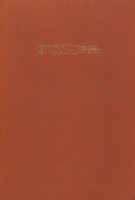 Author: Minamoto no Shitagō
Author: Minamoto no Shitagō
Translator: Ziro Uraki
Publisher: Shinozaki Shorin
ISBN: 9784784104376
Released: 1984
Original release: 10th Century
While reading The World of the Shining Prince: Court Life in Ancient Japan, I encountered quite a few references to a work of fiction called Utsuho Monogatari. Written in the late tenth century, most likely by the famous scholar and poet Minamoto no Shitagō, it is considered to be one of the first, if not the first, long-form narratives of Japan. That in and of itself caught my attention, but I became even more interested in reading Utsuho Monogatari (sometimes written as Utsubo Monogatari) when I learned how important of a role music played in the tale and that it was an immediate precursor to and major influence on The Tale of Genji. However, I did have a bit of trouble finding a translation of the complete work. Thankfully, with some help from other readers of classic Japanese literature, I discovered Ziro Uraki’s 1984 English translation from the Japanese publisher Shinozaki Shorin The Tale of the Cavern. (Somewhat unusual, as the title is more often translated in English as The Tale of the Hollow Tree.) Uraki was also the first person to translate Utsuho Monogatari from tenth-century Japanese into modern Japanese.
During the reign of Emperor Saga lived a young nobleman named Toshikage who was admired for his beauty, talent, and learning. At the age of sixteen he was ordered to join the embassy to China. However, the three ships that set sail for the continent encountered a large tempest and Toshikage, shipwrecked on the coast of Persia, was the only survivor. It would be many, many years before Toshikage would be able to return to Japan, bringing with him impressive musical skill and a collection of mystical koto gifted to him by the Heavens during his wanderings. These koto and the secrets to playing them—songs that could cause great storms and make the earth tremble or heal those who heard them—would be kept and cherished by his family for four generations. Toshikage’s descendents and their musical abilities were highly sought after, bringing them both strife and fortune in politics as well as love. Their lives would become closely entwined with those of the other nobility in the capital and even with those of the members of the Imperial family itself.
While the beginning of The Tale of the Cavern contains many fantastical elements, the rest of the novel tends to be much more realistic, following the political and romantic affairs of its many characters. However, the magic never entirely disappears from the tale and the novel both begins and ends with the magnificence and marvel of music. Proficiency in the arts—music, calligraphy, dance, poetry, and so on—was a highly desired quality among Heian-era nobility. Those who had such skill in The Tale of the Cavern were rewarded for their diligent study and natural talent, rising quickly through the ranks and securing advantageous marriages and promotions for themselves and their relatives. In addition to music, poetry in particular was a very important part of both court life in Heian-era Japan and in the novel iteself. The Tale of the Cavern is filled with poetry and numerous declarations of love—skillful wordplay was appreciated nearly as much as a person’s status and influenced the regard and esteem in which they were held by others.
As a story of music and love, I couldn’t help but be drawn to The Tale of the Cavern. I don’t think it will necessarily appeal to a general, modern audience, but readers who are interested in classical Japan and Japanese literature would be fortunate to read the novel. (If they can find it, that is.) The narrative does wander a bit, and the plot of the story isn’t especially driving, either. The individual chapters and the characters and events in them are related, but they aren’t always closely tied together; it can sometimes be difficult to tell just exactly how much time has passed between one and the next. Even so, The Tale of the Cavern provides a fascinating glimpse into Heian court life and all of the social and political maneuverings involved; granted, with a heavy dose of romance and just a touch of the fantastic and supernatural added to the novels’ more realistic elements. But I, for one, was glad to have the opportunity to read Utsuho Monogatari in its entirety.
